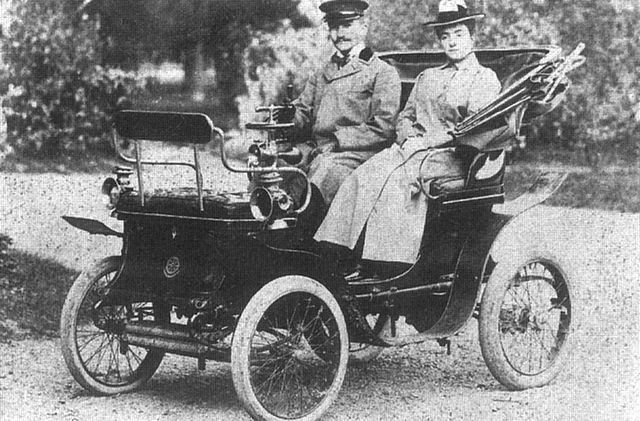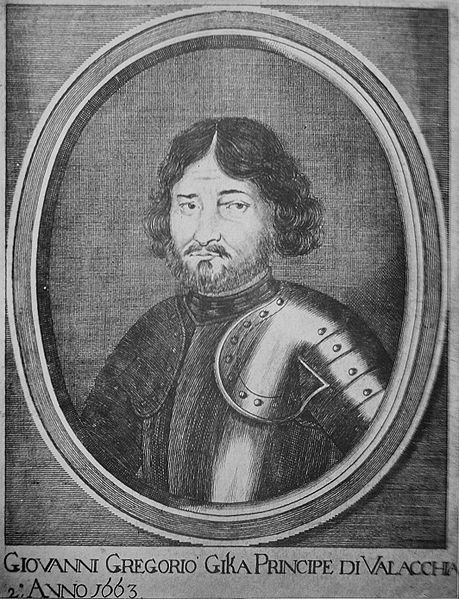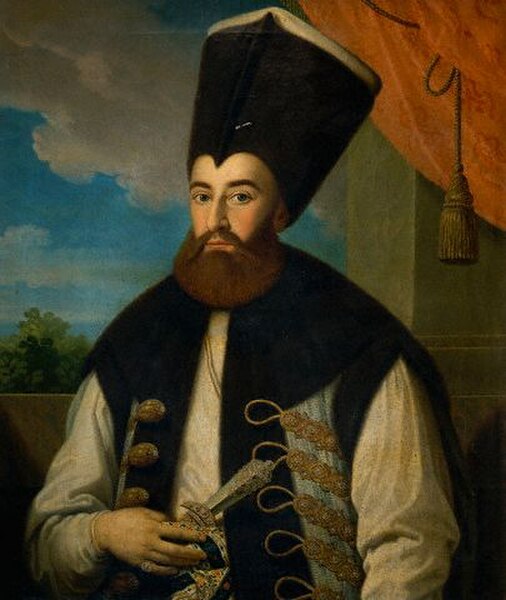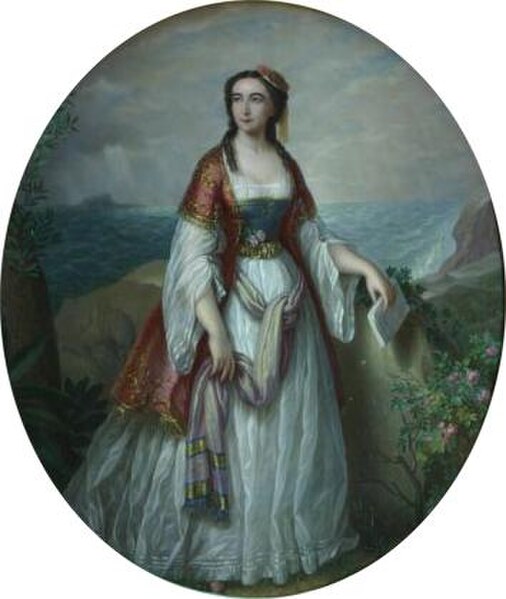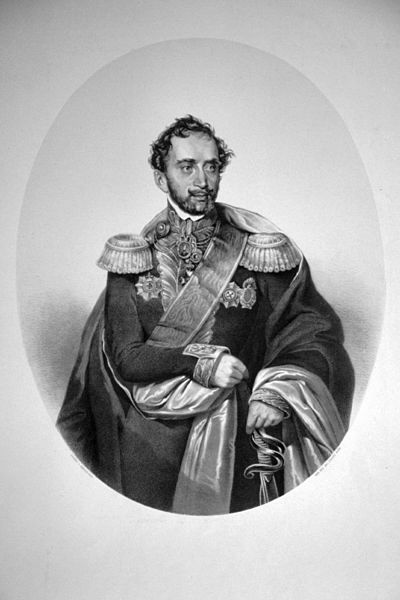Alexandrina "Didina" Cantacuzino was a Romanian political activist, philanthropist and diplomat, one of her country's leading feminists in the 1920s and 1930s. A leader of the National Council of Romanian Women and the Association of Romanian Women, she served as Vice President of the International Council of Women, representing the International Alliance of Women, as well as Romania, to the League of Nations. However, her feminist beliefs and international profile clashed with her national conservatism, her support for eugenics, and eventually her conversion to fascism.
Cantacuzino, photographed ca. 1925
Alexandrina and husband Grigore Gheorghe Cantacuzino in the family car, August 1900
Cantacuzino in or around 1936
Alexandrina Cantacuzino (center, marked X), receiving visitors at the Zamora (Cantacuzino) Castle in Bușteni, ca. 1928
The House of Ghica [or Ghika] was a noble family whose members held significant positions in Wallachia, Moldavia and later in the Kingdom of Romania, between the 17th and 19th centuries. The Ghica family produced many voivodes of Wallachia and Moldavia and two Prime Ministers of Romania. Several branches of the family still exist today.
Grigore Ghica, the first Prince of Wallachia (1659–1660 and 1673–1678) from the Ghica family.
Grigore IV Ghica, Prince of Wallachia (1822–1828)
Portrait of Dora d'Istria by Petre Mateescu (1876).
Alexandru II Ghica, Prince of Wallachia (1834–1842)


